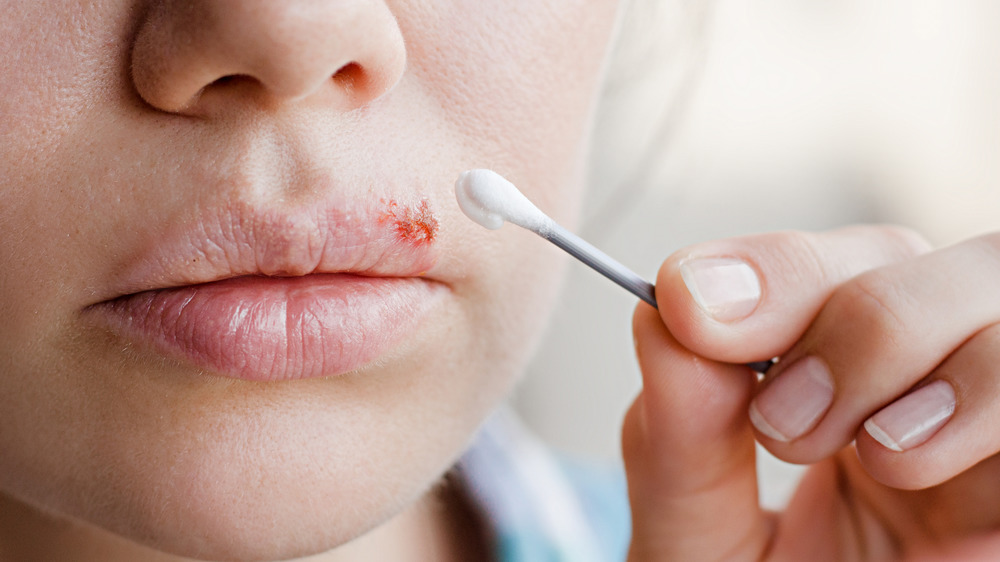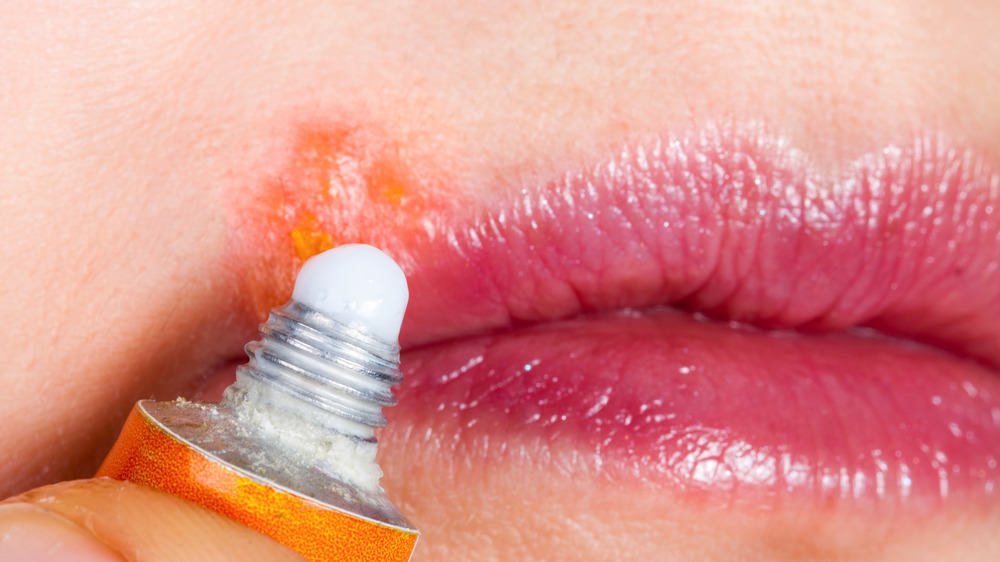What Really Causes Cold Sores?
Crusty, painful, blistery, fluid-filled — these are not the ideal terms someone would want used to describe their lips, but it is precisely how to describe those unwanted cold sores perching on your pucker. According to Johns Hopkins Medicine, approximately 50 to 80 percent of American adults are affected by herpes simplex virus-1 (HSV), the virus responsible for cold sores. They also estimate that approximately 90 percent of adults have been exposed to the virus at least once by the age of 50. So while the good news is, you're not alone, the bad news remains — you're not alone.
HSV-1 can be spread through intimate activities such as kissing, sharing food or make-up, and even oral sex (via Healthline). While an individual is most contagious if they have a visible cold sore on their lips, the virus can still be spread without an active outbreak. Once infected, an individual will have the virus for life. While some will never experience symptoms, most will suffer from intermittent and sometimes unpredictable periodic outbreaks.
Typically, the first outbreak of cold sores is the worst and can be accompanied by flu-like symptoms, headaches, and enlarged lymph nodes. Subsequent outbreaks tend to be milder but bothersome nonetheless. The first signs of an outbreak usually consist of redness and a burning or tingling sensation at the borders of the lips. One or more fluid-filled blisters will then appear on the edge of your pout, before starting to leak and ooze, becoming sores over the course of a few days. Eventually, the sores will dry out and start crusting before fully healing in about one week.
How to treat and prevent cold sores
Several risk factors have been associated with triggering recurrent cold sore outbreaks including; increased stress, prolonged sunlight exposure, previous recent illness, and menstruation to name a few.
While there is no cure for HSV-1 infection, outbreaks can be symptomatically managed. Mild symptoms can be managed with the use of prescription anti-viral ointments or over-the-counter creams like Abreva, which promises to shorten the duration of an outbreak if used at the first signs. For more significant outbreaks, talk to your medical provider about oral antiviral medications such as acyclovir or valacyclovir.
In addition to treatment, prevention is also important to slow the spread of HSV-1. For obvious reasons, it is recommended to avoid kissing and other close physical contact when a person is experiencing an outbreak and avoid sharing utensils, toothbrushes, and make-up with others at any time. Avoid touching the sores, as HSV-1 can be spread to other parts of the face including the nose or cheeks. While it may seem that a one week outbreak lasts for what feels like forever, whatever you do, do not try to pop or burst the blister. Let nature run its course, and you'll be back to your regular self in no time.


